Note
THE SLUG GOD
You know what? Sure.
#hopps-rambling#we apologize for the sudden disappearance#1st reason being school#2nd being nobody else knowing the password#seaslug haven
2 notes
·
View notes
Note
woag, more sea slug lovers!!! <3
could you show the world phyllodesmium poindimiei, it's really beautiful
according to wikipedia it's also called spun of light which is such a pretty name, but sadly that claim is unsourced and I can't find the name anywhere else (except for copies from wikipedia) 😔
Latin name: Phyllodesmium poindimiei
Common name: Spun Of Light
Family: Myrrhinidae
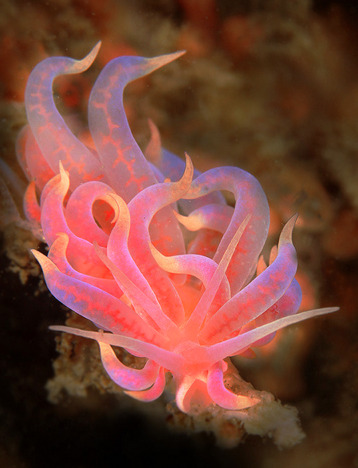
We couldn't find another name :(
I think 'Pink octoslug' could sound cool :D
🌐 Spread sporadically along tropical coastal regions such as Australia, Hawaii, and the Indo-Pacific. Mostly coral reef marine habitats.
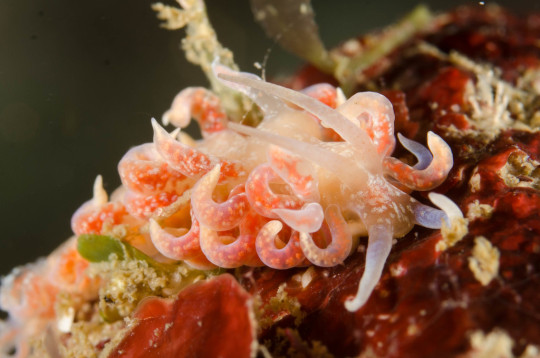
🍽 Very picky eaters. They feed on Telesto, Caridoa, and other Alcyonaceans. Their prefered food is Carijoa, a soft coral.

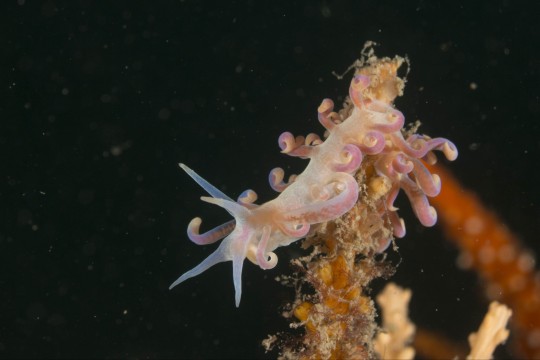
💫 Their ceratas are for defensive purposes, not just for capture and release of toxins.

💫 These slugs are nocturnal. Hiding under the corals during the day, coming out during the night to feedon said corals.
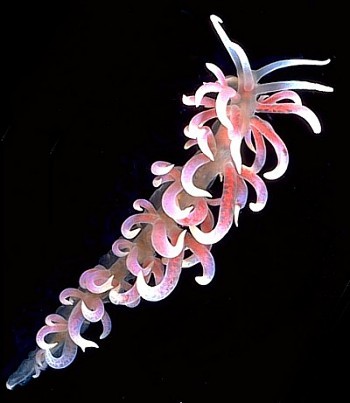
🦠 They are often used as a determinant for climate changed, due to them being reliant on the octocorals they feed on. Through these changes they evolve and thrive. It also activly helps us!
We apologize for such a long wait! It is the exam season before holidays, so we will update whenever we can. :')
We thank you for the ask! (If there are any mistakes, please, don't be afraid to DM! We might have read the information wrong or even misunderstood.)
#sea slug#seaslug haven#deep sea#marine animals#marine life#nature#nudibranch#ocean#marine biology#seaslug#8.12.2023#spun of light#Phyllodesmium poindimiei#pink octoslug#Myrrhinidae
284 notes
·
View notes
Note
Hello! Love your blog. It's wonderful and is sure to make many people's days. Sea slug request: Cyerce Nigricans or Costasiella Kuroshimae.
🌊Latin name: Costasiella Kuroshimae
🌊Common name: Leaf slug, Leaf sheep, Solar-powered sea slug
🌊Family: Costasiellidae

🌐Near Japan, Indonesia, and the Philippines, leaf sheep can be found underwater, where light is available. Found next to coral reefs.

🦠They live and feed on Avrainvillea - a fuzy algea. They suck on the algea, getting the chloroplasts out and keep them in the ceratas for 10 days. This process is called kleptoplasty. It also means they can do photosyntesis - they’re one of the only sea creatures that can photosynthesize. If needed, it allows them to suppliment their diet in case of need.

More photos of these guys:
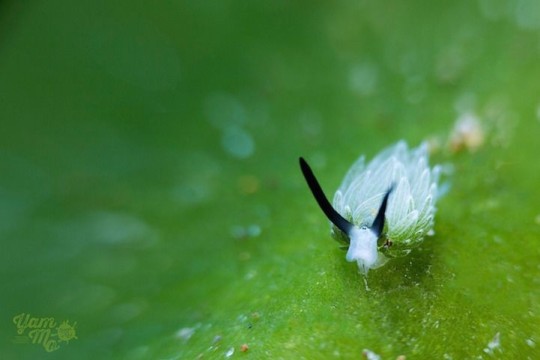
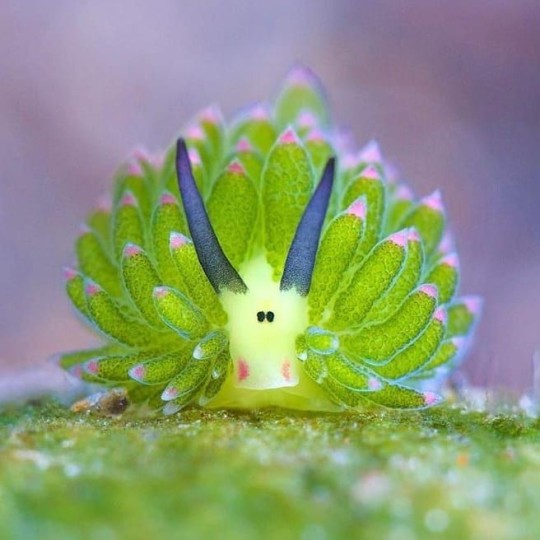

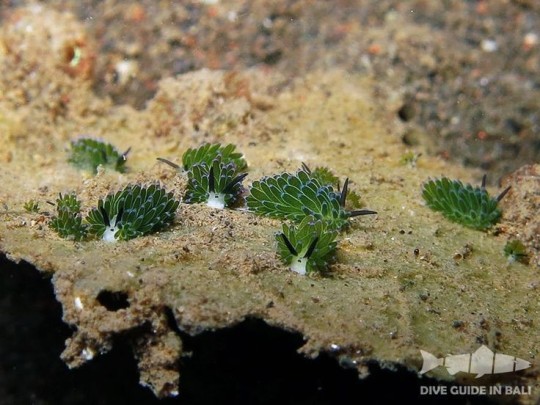
🐌 We thank you for the ask! Cyerce nigricans is for another time ;)
P.s: apologies for the late reply!
#answered ask#answered#ask#sea slug#seaslug haven#ocean#nature#deep sea#nudibranch#marine animals#marine life#Costasiella Kuroshimae#Costasiellidae#leaf slug#leaf sheep#solar-powered sea slug#most-definitively-a-human
98 notes
·
View notes
Text
🌊Latin name: Glaucus atlanticus
🌊Common name: Blue sea dragon, Sea swallow, Blue angel, Dragon slug
🌊Family: Glaucidae
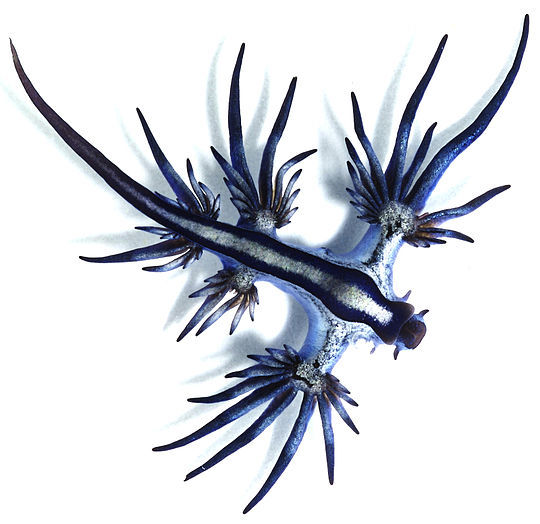
Probably the most well known sea slug on the internet, famous for its interesting appearance and many videos of people handling it.
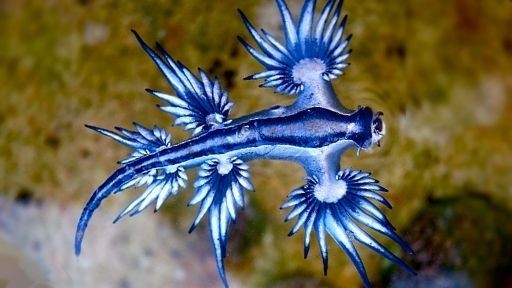
🌐Found throughout the Atlantic, Pacific, and Indian Oceans in tropical and subtropical waters. They appear mostly on the surface, floating on its back - an air bubble in its stomach helping it maintain buoyancy. That does mean they can accidentaly wash up on beaches, hence many videos of people handling it.

💫 Fun fact: A group of blue glaucuses floating together is called a “blue fleet.”
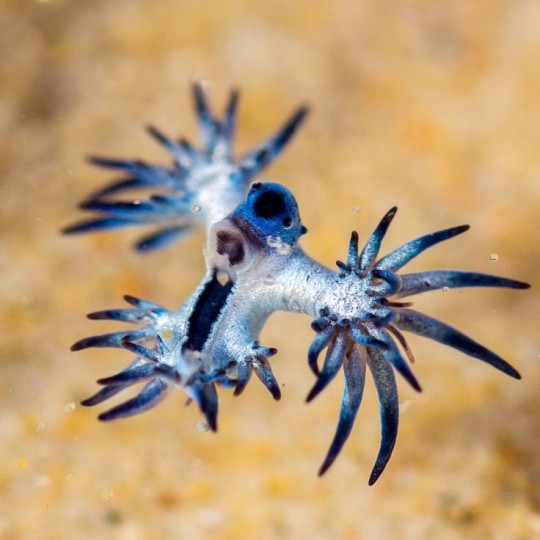
🖍Their coloration is an example of countershading - its bright blue underside helps the blue glaucus blend into the water’s surface while its grayish backside helps it blend into the ocean when spotted from below, camouflaging it from both flying and swimming predators while floating in open water.
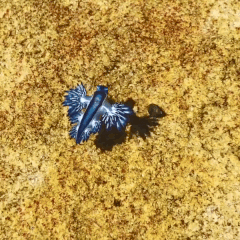
🍽 This silly guy is a predator. It hunts larger marine organisms, e.g. plant Physalia physalis, the polyp Porpita porpita or the snail Janthina janthina. Occasionally, some individuals may resort to c-nnib-lism.


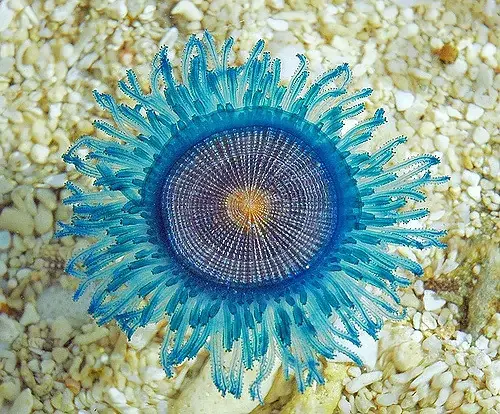
⚠️As mentioned before, these nudibranches feed on what is called Portuguese Man-O’-war (Physalia physalis) - venomous prey - which also makes them venomous. This venom is stored in the ceratas (refer to picture above; dark blue finger like ceratas), the more Physalia it eats -> the more concentrated the venom will be.

And for those interested in more of this silly slug:
Video of a dancing Glaucus atlanticus
Video of a Glaucus atlanticus being properly handled
Video of the silly chilling
#ocean#nature#deep sea#nudibranch#marine animals#marine life#marine biology#seaslug#sea slug#seaslug haven#glaucidae#glaucus atlanticus#blue sea dragon#sea swallow#blue angel#dragon slug#19.11.2023
36 notes
·
View notes
Text

🌊🐌
Latin name: Trinchesia sibogae, Tenellia sibogae
Common name: -
Family: Trinchesiidae

They mostly live in the tropical waters of Indo-West Pacific region.

As much as we would love to tell you more, not much is known about the specimen. :(
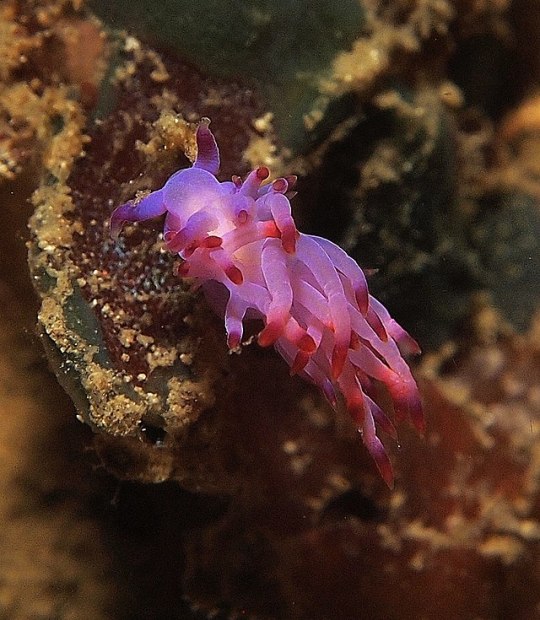
Enjoy the photos of the silly at least :')
Next post: 19.11.2023
132 notes
·
View notes
Text
Latin name: Trinchesia sibogae, Tenellia sibogae
Common name: -
Family: Trinchesiidae

They mostly live in the tropical waters of Indo-West Pacific region.

As much as we would love to tell you more, not much is known about the specimen. :(

Enjoy the photos of the silly at least :')
Next post: 19.11.2023
#ocean#nature#deep sea#nudibranch#marine animals#marine life#marine biology#seaslug#sea slug#seaslug haven#Trinchesiidae#Tenellia sibogae#Trinchesia sibogae#low on information#queue#scheduled#17.11.2023
132 notes
·
View notes
Text
Latin name: Dirona albolineata
Common name(s): Frosted sea slug, Alabaster nudibranch, White-lined Dirona
Family: Dironidae
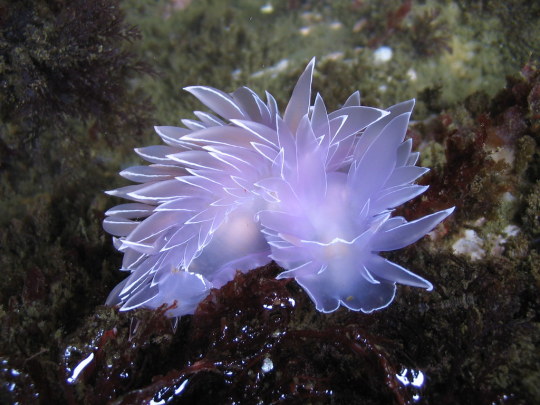
Located in the Eastern Pacific ocean (coasts of America -> Alaska to San Diego) or the Western Pacific ocean (Russia, Japan)
Habitats are usually on rocks, but it isn't unknown to see them in mud. May also be found on docks and pilings.
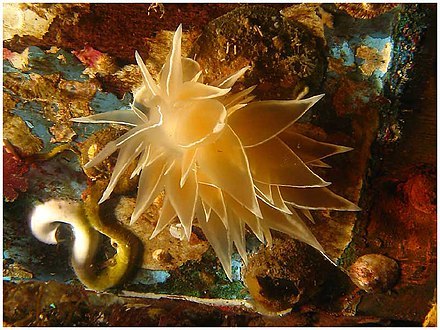
They can vary in colours. Common characteritics are translucent body with white outlines on the edges.

Being carnivorous, they feed on bryozoans, crustaceans, hydroids, ascidians, and snails.
Extra resource with interesting informations:
https://archives.evergreen.edu/webpages/curricular/2010-2011/marinelife1011/web/dirona_albolineata.html
#dirona albolineata#first post#sea slug#seaslug haven#seaslug#ocean#nudibranch#dironidae#alabaster nudibranch#white-lined Dirona#frosted sea slug#15.11.2023#deep sea#marine animals#marine life#marine biology#nature
403 notes
·
View notes
Text
🌊Welcome!🌊
Welcome to the Seaslug Haven!
More information below:
This account was made by @beeinatuxedo. It is purely a fun blog for sea slugs and the special Isopod Monday!
We accept any submitted posts on sea slugs and isopods alike. Each will have it's latin name, common name and picture included with an alternative text. Everything will be tagged for better navigation of the blog. :) We also accept asks on the topic of course! ^-^
We are students! It does mean that making posts can be incosistent or very rushed. We apologize beforehand.
IF you see any mistakes in the post PLEASE correct us! Best way is to DM it for a quick change.
I hope you too will enjoy this account as much as we do! Go with flow 🐌🌊
8 notes
·
View notes